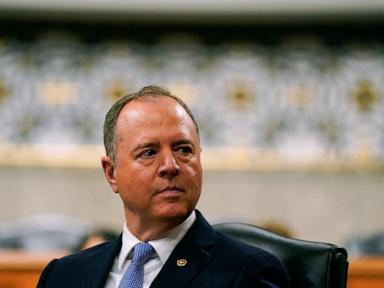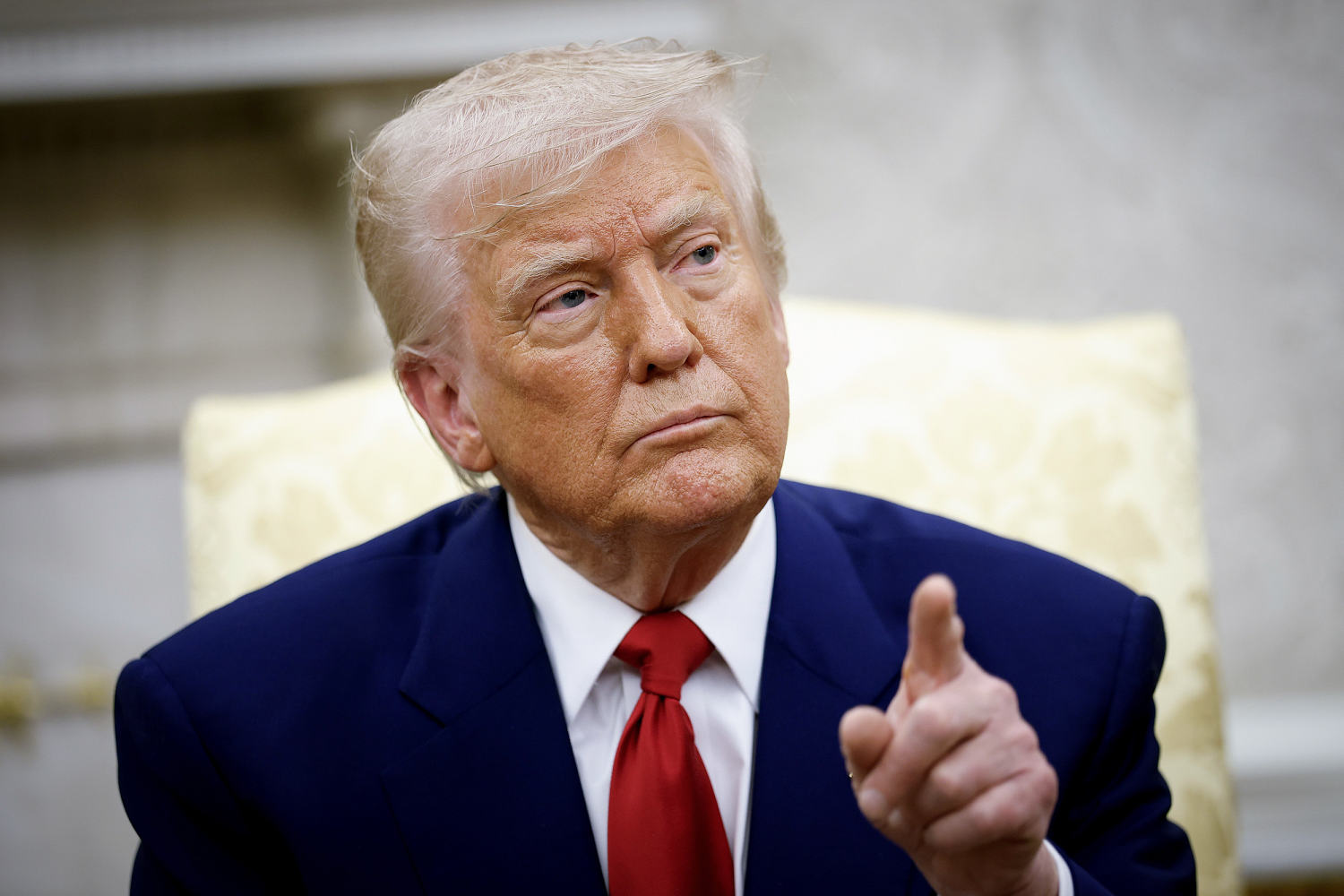The whiplash from President Trump’s fresh tariff agenda has persisted into the weekend as the president's approval rating takes a dip and Republicans on Capitol Hill work to carry out his domestic agenda.
After implementing a flat 10 percent tariff on all goods coming into the country, alongside steeper reciprocal tariffs against dozens of nations, the financial markets took a dramatic tumble.
But, on Wednesday, the president reversed course and temporality paused most of the tariffs, prompting the markets to spring back to life. The same day, Trump increased tariffs against Chinese goods by 125 percent, on top of the 20 percent duty levied against the world’s second largest economy earlier this year.
China fired back Friday morning, announcing it would institute a 125 percent tariff on all U.S. goods coming into Beijing.
Bridgewater Founder Ray Dalio, who will join NBC's "Meet The Press," is also slated to weigh in on Trump's tariffs. Earlier this week, the business leader predicted that a recession is likely, but may not be a "normal recessionary kind of situation" given the country's "changing monetary order."
Dalio also called on Trump to broker a “win-win” trade deal with China in a lengthy post on the social media platform X.
As a result of these sweeping tariffs, the president’s approval has taken a hit, according to recent polls. Still, the White House said that over 75 nations have contacted the U.S. in hopes of negotiating a new trade and that 15 offers are already on the table.
“The phones have been ringing off the hook to make deals,” White House press secretary Karoline Leavitt said.
U.S. Trade Representative Jamieson Greer, who will sit down on CBS News' "Face the Nation," has said he has talked to multiple countries since Trump decided to roll back most of the tariffs, telling Fox News on Wednesday that he has a "full dance card." On "Face The Nation," Greer is likely to discuss these talks and the impact of Trump's trade agenda on American consumers.
Meanwhile, on Capitol Hill, this week House Republicans were busy trying to pass the Senate’s budget framework, the first step in kickstarting the implementation of important parts of Trump's legislative agenda. They succeeded on Thursday, passing the legislation in a largely party line 216-214 vote after lobbying to get some fiscal hawks on board.
Some moderate GOP members have expressed frustration with the process, saying the faction of fiscal hawks, who have looked to secure commitments on spending cuts, get too much attention and expressed worry that severe cuts could lead to slashing of Medicaid.
“These guys get all the attention, meanwhile the people who actually have vulnerable situations in terms of races, you know, we take tough votes,” one moderate House Republican































